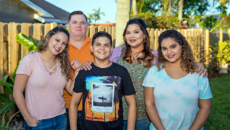How Can I Persuade My Spouse to Adopt?
Many, many couples are deeply divided about adoption. Marriage counselors and social workers say the reluctant partner is usually the male, whose concerns may range from simple ambivalence about parenthood in general to specific concerns about loving a child who’s not related by blood. Most of the couples who were initially divided say that spending time with adoptive families—especially watching adoptive dads with their children—eased the reluctance, but you must also work through the issues within the framework of your own marriage.
- Acknowledge your spouse’s concerns and fears.
- Air and discuss the differences between you, rather than trying to cover them up or smooth them over.
- Maintain balance in your discussions between the reasons for your spouse’s resistance to adoption and your reasons for wanting to adopt.
- Don’t take a spouse’s initial reaction as the final word. When a subject is emotionally charged, people often say things they don’t really mean.
- Give a spouse time and space to consider issues as they arise; recognize that people approach change at different speeds.
- Don’t expect your spouse to react to developments in the adoption process the same way you do.
- Find a support group of other couples considering adoption. Hearing that they, too, have reservations may help both of you.
- If your spouse isn’t providing the support and encouragement you need to cope with the adoption process, then seek support from a sympathetic friend or relative.
- See a marriage counselor if you have trouble navigating any of these issues. A reluctant spouse may hear questions and advice better from a neutral observer.
My Parents and In-laws Hate the Idea of Adoption—Can We Go Ahead?
Lots of Adoptive Families readers report that at least one grandparent was opposed to their adoption. Some can’t give up the idea of biological grandchildren; others even insist that any child placed for adoption must be a “bad seed.” Most parents report that the concerns disappear as soon as the child is home, but occasionally grandparents (and other family members) simply never come around. Only you can decide if building your own family is worth the possibility of rupture with other family members.
“When we told our families we were adopting, everyone appeared to be excited. Over the next few months, the topic of conversation veered toward our open adoption plan. My sister-in-law began asking questions, which I welcomed, at first. However, once I gently tried to educate her, she became defensive, opinionated, and downright mean, telling me that, because I’m not a mother, I couldn’t possibly understand what information children should and should not be privy to. I reminded her that, because I was adopted, I know it is helpful to be open and honest with a child about their adoption story. Even with facts readily available, my sister-in-law still has a negative opinion about adoption, and I don’t think there will ever be a positive breakthrough.” —Michele






